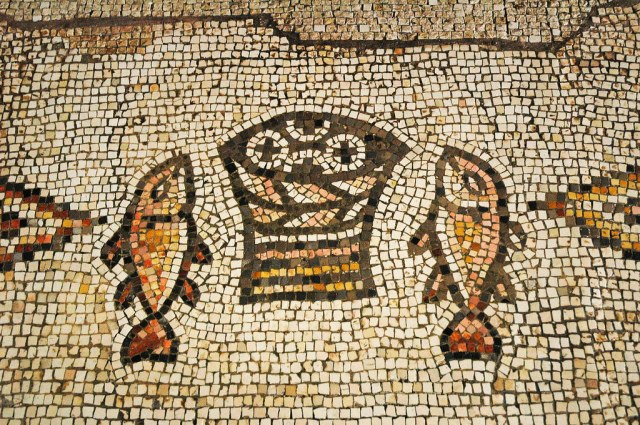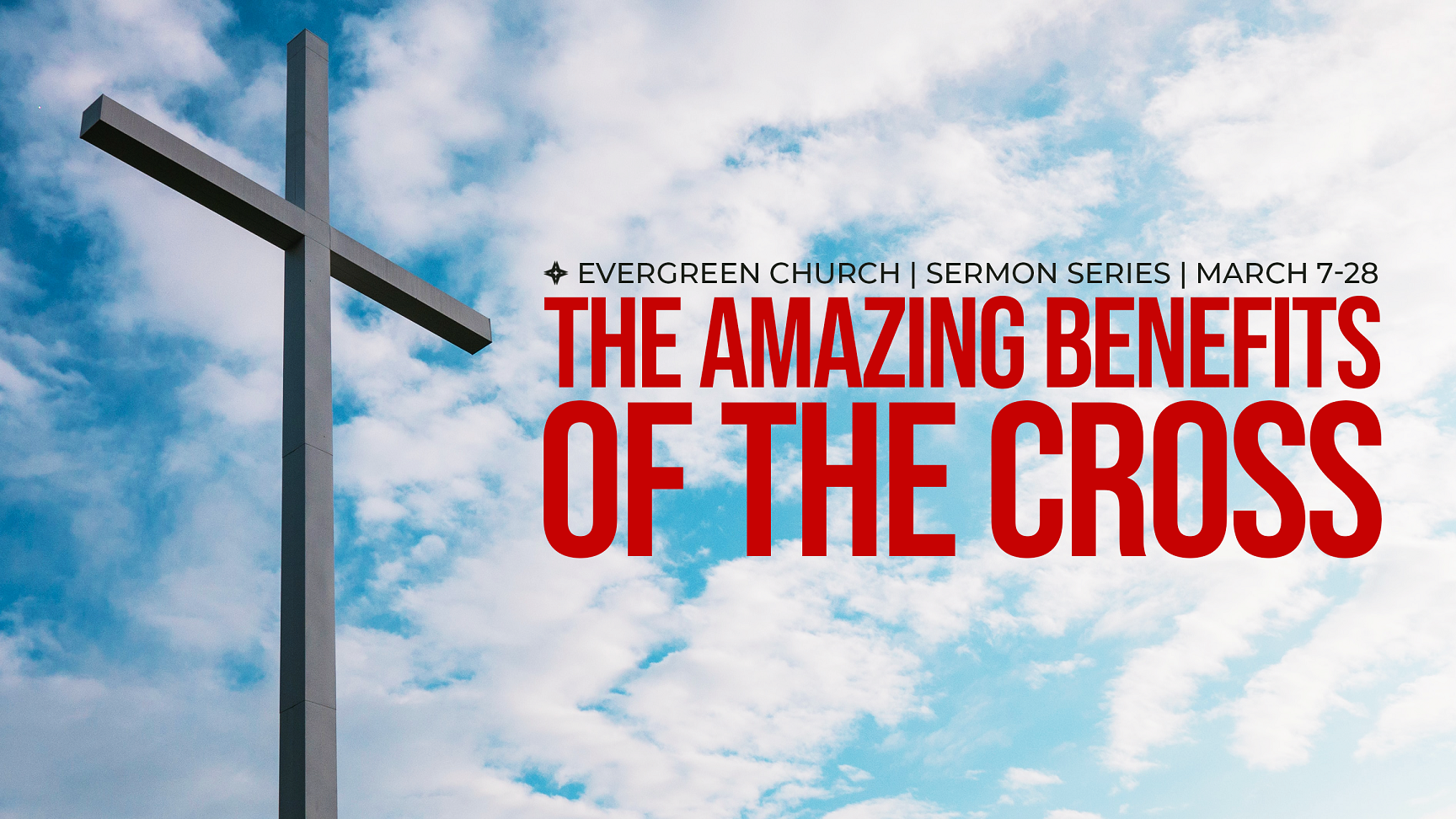
[Listen to an audio version here]
The Inevitability of Suffering
Jordan Peterson is an interesting modern thinker. His book 12 Rules for Life has sold 3 million copies. He has toured the world speaking about these rules, giving long academic-style lectures to large audiences. As Jordan Peterson spoke around the world, one thing really surprised him. When he spoke about the inevitability of suffering and how hard life is, people were really encouraged. Why? Because everyone experiences hardships, and it can feel some like something unique to us. It’s good to know that it’s not something strange just happening to us. Suffering is part of life. Life is hard.
Modern life can deceive us on this point. Our industrial might has enabled us to overcome so many problems that our ancestors over the centuries and millennia struggled with such as basic clothing, shelter, and food. Because of this, we begin to think that life will be easy. The trouble is that industrialization simply solves some problems to reveal further problems on a higher level. We may have food in abundance, but we can’t solve our anxiety, loneliness, death, or need for meaning. For all our scientific know-how, we can’t achieve social cohesion.
So, everyone is going to suffer. Everyone will experience pain. The question is, what will we do with it? Will we rise to the occasion, or we will be crushed under its weight? Will we take the blows, get back up, and keep moving forward; or, will we retreat from the challenges of life and try to build a suffering-free bubble?
All of life has challenges, but Christianity has additional challenges. Much that is in this world is hostile to our faith. There will be attacks. How do we process this? How can we think about this in a way that will help us move forward?
The first thing to do is accept the truth: we will face opposition and suffering. When someone comes to Christ, we should tell them, get ready for trials. Get ready for suffering. Prepare for battle. Start training. This will be no cake walk. Prepare to get punched in the mouth.
The Apostle Paul says this very plainly. He did not want them to be be “unsettled by these trials. For you know quite well that we are destined for them. In fact, when we were with you, we kept telling you that we would be persecuted. And it turned out that way, as you well know” (1 Thess. 3:3–4). He kept telling them, Christianity is not going to be easy. You will be persecuted.
There are two basic difficulties that we face here. The first is from outside. This was a significant factor in Thessalonika. “For you, brothers and sisters, became imitators of God’s churches in Judea, which are in Christ Jesus: You suffered from your own people the same things those churches suffered from the Jews” (1 Thess. 2:14). When we seek to do something good, we should expect to face opposition from people. This is inevitable. So, don’t be surprised.
The resistance goes beyond people, though. It also comes from Satan. Beyond the world that we see, there is a real spiritual world of evil with real personalities that are attacking us. “I was afraid that in some way the tempter had tempted you and that our labors might have been in vain” (1 Thess. 3:5).
But the most important struggle we have is the struggle within. Our own brain, spirit, and body conspire against us to keep us from doing what is right. It’s a battle to move in the right direction. It’s a battle to get ourselves thinking and moving in God’s direction.
The novelist Steven Pressfield wrote a book describing his struggle to write successful novels called The War of Art. He said the biggest challenge was his own “resistance.” So, producing something good was like a war. He had to fight every day the urge to give up and just go off to the beach instead of writing the novel. The struggle against the flesh in the case of our faith is a war of even greater intensity.
Faith Built by Suffering
So, how can we find encouragement in this struggle? The first thing is to accept that suffering and opposition are a part of the Christian life. But that’s just the first thing. The second thing is to re-interpret suffering to see the good in it.
Many people hear the fact that suffering is inevitable and think that this is an unmitigated disaster, but the Bible has a very different perspective. Paul says elsewhere, “we also glory in our sufferings, because we know that suffering produces perseverance; perseverance, character; and character, hope” (Rom. 5:3–4).
James says, “Consider it pure joy, my brothers and sisters, whenever you face trials of many kinds, because you know that the testing of your faith produces perseverance” (James 1:2–3).
Peter says that we greatly rejoice even though we suffer a variety of trials. There is even something good in them: “These have come so that the proven genuineness of your faith—of greater worth than gold, which perishes even though refined by fire—may result in praise, glory and honor when Jesus Christ is revealed” (1 Pet. 1:7).
The point is that as we experience suffering and then exercise our faith, we grow into what we are supposed to be. There is no higher goal that we can have than to become people who trust God. It’s what the Apostle Paul said in Romans. He prayed that the God of hope would fill them with all joy and peace as they trusted Him.
Faith fills us with joy and peace, but the trials and opposition we experience can knock us off our game. They keep us from joy and peace and dim our faith.
In the case of the Thessalonians, however, they did not have a lot of experience. They were just getting started. They seemed to be doing well, but they had not yet felt the rattle of their teeth from blows in the midst of battle. That’s why the Apostle Paul was concerned that they would “be unsettled by these trials.”
However, Paul knew that if they could exercise their faith in the midst of the trials, then the virtue of faith would grow within them. It would produce perseverance, an ability to keep doing good in the face of opposition. This perseverance would build their character. This character would make them complete.
So, the stakes were very high for the Thessalonians. Would they rise to the occasion and become the people of faith, hope, joy, and peace that God designed them to be, or would they be thrown into turmoil by the trials? Would the tempter successfully induce them to abandon their destiny, or would they remain faithful to the Word of God?
Support in the Midst of Suffering
The stakes are high in the battle we face, but we are not without support. Even though we undergo sufferings, we should not think we have to do it alone. We have resources. We have the Holy Spirit, we have the new nature, and we have the people of God. If you are struggling with your faith today, come back to the community! We can help. If you are here and struggling, share it with one of these friends.
The whole context here is Paul’s support and concern for the Thessalonians. He wanted them to know that he left unwillingly and was kept from helping them in person unwillingly, but he was still a resource for them. He said, “For what is our hope, our joy, or the crown in which we will glory in the presence of our Lord Jesus when he comes? Is it not you? Indeed, you are our glory and joy” (1 Thess. 2:19–20). He wanted them to know that his failure to come back did not indicate any lack of affection for them.
In fact, he was so concerned about them that he did not want to leave them without a face-to-face support. So, he says, “we sent Timothy, who is our brother and co-worker in God’s service in spreading the gospel of Christ, to strengthen and encourage you in your faith . . .” (1 Thess. 3:2). Each of us have Timothy’s and Paul’s and Silas’ that we can turn to when we need support in the battle.
As a Pastor, a colleague of Pastors, and a friend, I have spoken to many about their struggles. They come sometimes with great trepidation, but they are almost always glad that they shared their struggle. They find that they are not alone and that people still accept them in spite of their failings and sins. There is support in suffering!
Conclusion
Let me speak to three groups of people here today. You may be experiencing some severe suffering today. You may want simply to be rid of it, but can I encourage you to look at in a different way? Can I encourage you to see that this as part of life and as part of the life of faith? Can I encourage you to see it as walking the path of Christ who first suffered and then entered into His glory? Can I encourage you to see it as an opportunity to trust God and so develop the most important characteristic that you can have as a human being?
Maybe you are not experiencing a large degree of suffering today. Maybe you’re just experiencing the small challenges that we all face in living day to day life. Can I encourage you to not let those things go to waste? Use them as an opportunity for training. Commit yourself to trusting God whatever the day brings at you.
What does this look like? First, make it a goal. Make it a goal to trust God throughout your day. Ask for His help. Ask for strength to face the day with trust that leads to love and peace. This means that you keep trusting even when it’s hard and keep showing respect to the people around you no matter what.
Second, if you fail, then analyze what happened and consider how you might have viewed the situation differently. How did you respond when you didn’t get all the work done you needed to? Did you trust God with your status and security? Or did you start to panic?
How did you respond to a broken relationship? Did you repent for what you needed to repent of and leave that person in God’s hand? Or did you let yourself get frustrated as if the relationship was ultimately up to you?
How did you respond to ongoing health problems? Did you fall into despair as if you were abandoned? Or, did you trust that God would be with you and help you every step of the way? These are just a few examples of the way we can dedicate our lives to God and continue to develop trust, even in life’s hard circumstances.
Third, keep doing it. Keep making it a goal. There is nothing more important than becoming a person who trust God. This is the sole rock and sure foundation for human life, human serenity, and human creativity.
Now, some of you don’t experience suffering because you have insulated yourself from it. This is not faith. God calls us out into the world to exercise our faith in the midst of all its blistering and bruising. Put yourself out there. Put yourself in uncomfortable situations where you know you’ll be challenged. Seek for bigger things. Push out in relationships. Stretch your abilities. Try the heavier weight! Reach out to your neighbor. Invite that person over. Do something! Move into a bigger world. Let’s see your work motivated by your faith and your labor prompted by love.
Yes, it’ll hurt! but it will get you closer to where you want to be. You can’t become your true self by closing yourself off to the world. You become your true self by extending yourself into the world. You learn to meet the world with serenity after you have learned to experience its harshness. You learn to keep loving and serving after you’ve been hurt by others. This is how God develops faith and love within you. This is where God is leading you. So, let’s lean into it . . . together!
_______
Photo by Edward Howell on Unsplash






